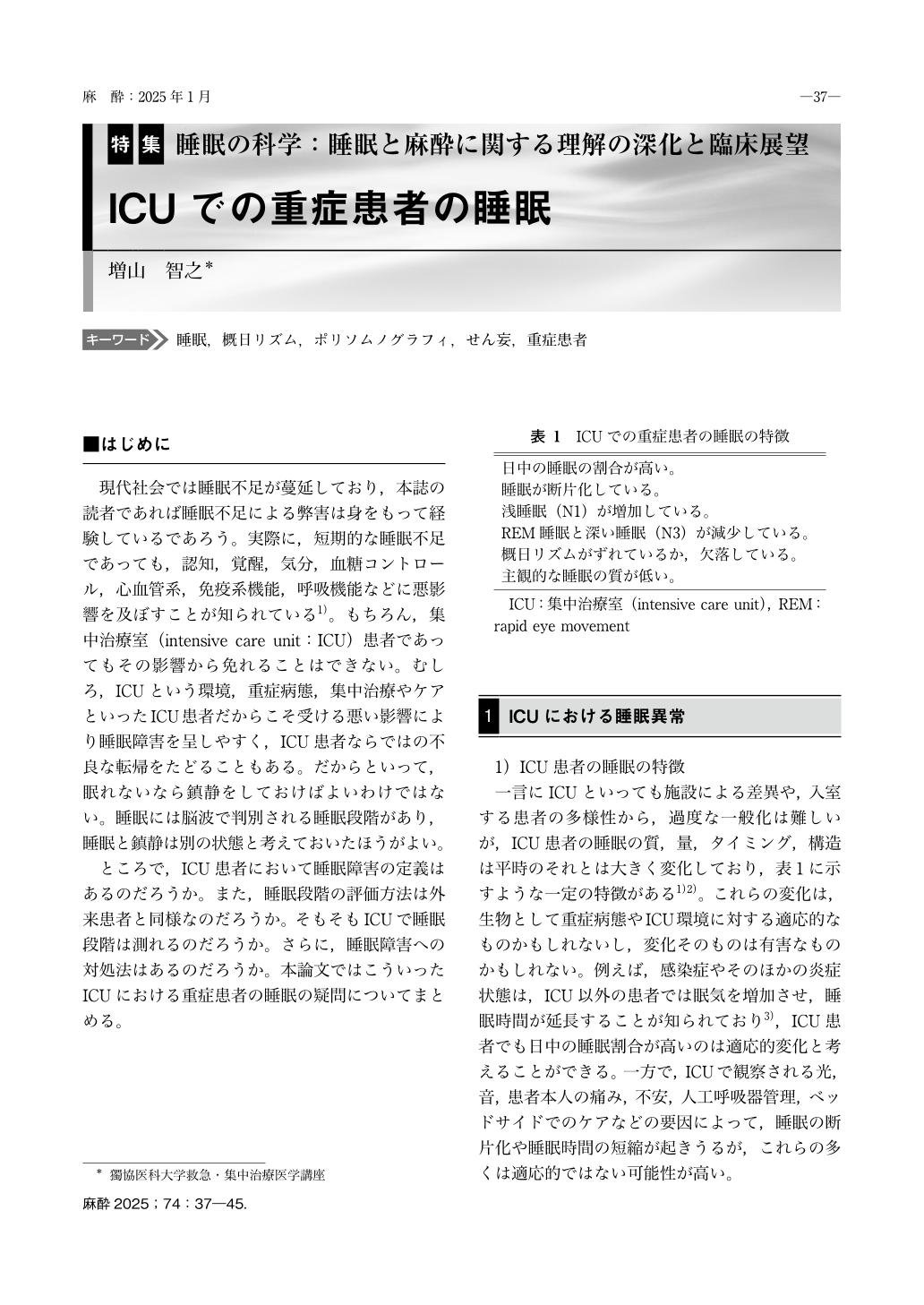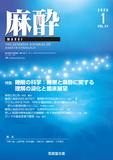Japanese
English
- 有料閲覧
- Abstract 文献概要
- 1ページ目 Look Inside
- 参考文献 Reference
- サイト内被引用 Cited by
はじめに
現代社会では睡眠不足が蔓延しており,本誌の読者であれば睡眠不足による弊害は身をもって経験しているであろう。実際に,短期的な睡眠不足であっても,認知,覚醒,気分,血糖コントロール,心血管系,免疫系機能,呼吸機能などに悪影響を及ぼすことが知られている1)。もちろん,集中治療室(intensive care unit:ICU)患者であってもその影響から免れることはできない。むしろ,ICUという環境,重症病態,集中治療やケアといったICU患者だからこそ受ける悪い影響により睡眠障害を呈しやすく,ICU患者ならではの不良な転帰をたどることもある。だからといって,眠れないなら鎮静をしておけばよいわけではない。睡眠には脳波で判別される睡眠段階があり,睡眠と鎮静は別の状態と考えておいたほうがよい。
ところで,ICU患者において睡眠障害の定義はあるのだろうか。また,睡眠段階の評価方法は外来患者と同様なのだろうか。そもそもICUで睡眠段階は測れるのだろうか。さらに,睡眠障害への対処法はあるのだろうか。本論文ではこういったICUにおける重症患者の睡眠の疑問についてまとめる。
Critically ill patients’ sleep in an ICU is characterized by sleep fragmentation, abnormal circadian rhythms, increased light sleep(stage N1), and decreased slow-wave(stage N3)and rapid eye movement(REM)sleep. Surprisingly, there is no definition of sleep disruption in ICUs, and the development of a universal definition is desirable. The gold standard for sleep assessment is polysomnography, but it is challenging to implement polysomnography in an ICU. It seems plausible to use portable electroencephalography instead. In addition, although sedation is not the same as sleep, sedation with dexmedetomidine could induce sleep similar to physiological sleep. ICU sleep disturbances are associated with poor prognosis in the short and long terms, and interventions using multifactorial bundles are recommended.

Copyright © 2025 KOKUSEIDO CO., LTD. All Rights Reserved.


